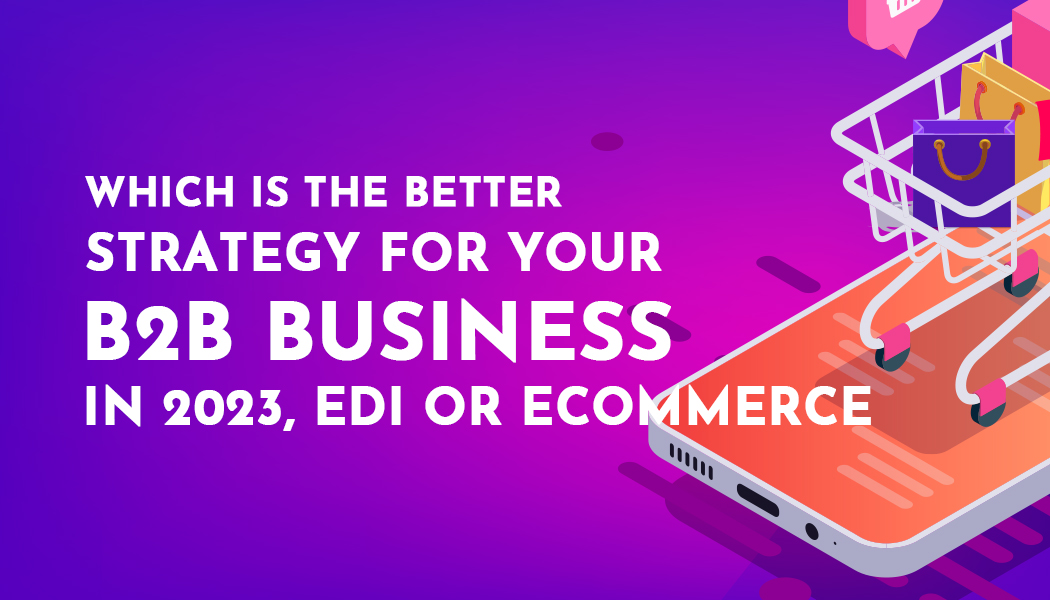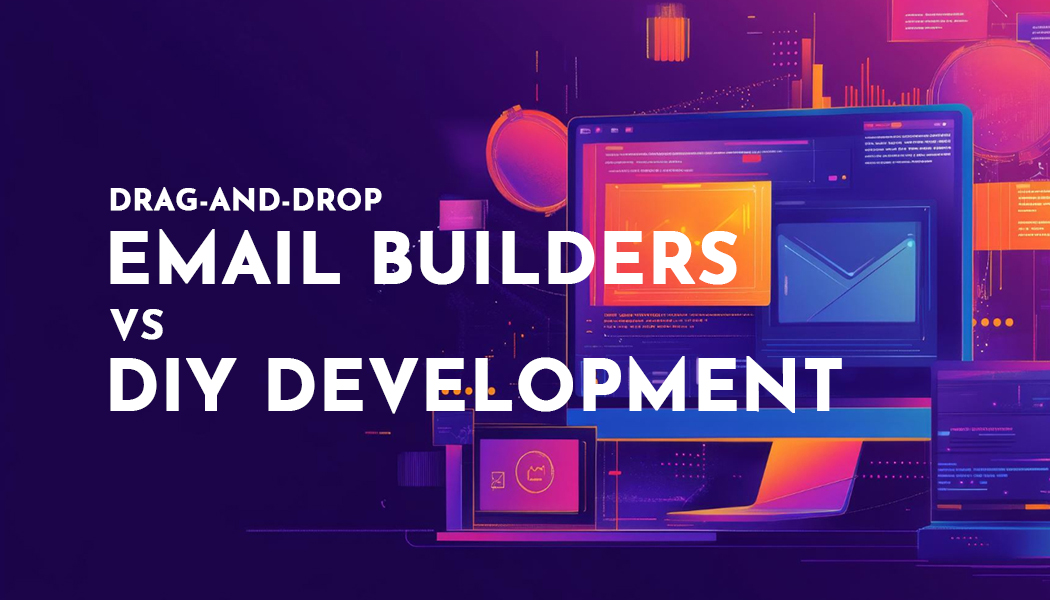Which is the better strategy for your B2B business in 2023, EDI or eCommerce?
Wholesalers and manufacturers who need to digitize their sales process may be perplexed by the possibilities. Nothing automatically qualifies as a solution or guarantees it will address your issue.
E-commerce development services have become crucial to corporate operations in the current digital era, enabling them to carry out transactions more quickly and successfully.
Electronic communication is crucial for managing intricate supply chains and optimizing company procedures in the B2B industry. Here mentioned are the best strategy for your B2B business in 2023:

Understand B2B e-commerce:
For companies aiming to improve productivity and boost revenue, B2B eCommerce has become a game-changer. B2B e-commerce development solutions are expanding quickly and significantly affect companies.
B2B eCommerce entails leveraging web-based systems to speed up and effectively manage online business transactions to purchase and sell goods and services.
What is EDI?
Computers can transport documents through Electronic Data Interchange (EDI), which uses predefined formats and digital rules. The sending and receiving companies directly exchange data. No additional translation or processing is required.
When individuals create papers, mistakes are inevitable; however, when computer programs make documents, the likelihood of error is significantly reduced. In addition, handling electronic pieces is far more economical than processing paper documents.
How does EDI work?
Let's take a step-by-step look at the EDI mechanism's operation to characterize it in simple terms:
-
The two computers must be configured correctly for the data transfer utilizing private communication networks to function properly.
-
Information, including purchase orders, invoices, shipment notifications, and remittance letters, are transmitted between businesses through EDI data and documents.
-
These files are sent over a secure connection and are encrypted.
-
As soon as the data is received, it is decrypted and converted into a structured format and parts that the receiving system can understand.
-
The information is then incorporated into the receiving system, and the procedure is performed in reverse to receive information from the other system.
Benefits of using EDI in B2B transactions:
● Increased speed and efficiency:
Businesses can transmit and process documents using EDI in real time, which enables them to react swiftly to shifting market conditions and client requests.
● Reliability and accuracy
EDI decreases the possibility of mistakes and guarantees that data is transferred accurately and dependably, improving the overall quality of the transaction.
● Cost-effective:
EDI can save money by streamlining corporate procedures and lowering administrative expenditures. Businesses can save money and improve productivity by automating manual tasks like order processing and invoicing, which need less physical labor.
Businesses may increase their revenue and spur growth in a market that is becoming more competitive by utilizing the potential of EDI.
What is B2B e-commerce?
Through a value-added network or exclusive connection, such as an electronic marketplace, business-to-business e-commerce entails interactions and transactions between a corporation and its trading partners.
The growth of the B2B sector in recent years has been primarily attributed to shifting consumer needs and shifting market pressures. The distinction between B2C and B2B purchasing experiences has become hazier as big businesses have focused on customer experiences, convenience, and self- service.
B2B E-commerce development services are essential for differentiating businesses and enabling them to enter new markets, improve operational efficiency, and develop new revenue streams. Unlike EDI, which typically deals with large, recurrent orders, B2B commerce typically handles hoc ordering scenarios or situations where the items and order management systems may be quite complex.
B2B e-commerce offers a platform to interact with your clients online in ways other than just placing orders online. It brings your product catalog to them so they can look through it and learn more independently.
E-commerce capabilities:
Standing out from the competition is essential for a B2B business. Due to the strict EDI rules, an organization may need help to use the levers required to create competitive advantages in the market.
Conversely, businesses have a competitive advantage due to B2B e-commerce capabilities. It is essential to pick the best e-commerce development companies to develop your business.
● Customization:
Success depends on having the ability to cater to specific clients. Only B2B e-commerce allows for integrating features like product availability, pricing, and value-added services into a single experience.
With hundreds of buyer-customer entities expecting their transactional workflows and product mix to mirror their operational requirements when doing business with you, B2B modifications frequently have significantly more extensive levers or inputs.
● Control:
Successful businesses that modernize their e-commerce strategy quickly experience growth in their core B2B customer base. As a result, there is frequent internal enthusiasm to explore alternative markets, such as B2C or B2B2C, formally.
Once the B2B e-commerce strategy is in place, it is evident that the technological levers supporting your B2B customer base translate very well to expanding into new markets.
● Consistency:
The firm faces some intriguing challenges due to growth through digital transformation and commerce. How businesses expand experiences to meet customer demand will be the largest improvement.
This can manifest as drawn-out cloud migrations for businesses or as the outcome of each division or business unit obtaining siloed solutions to manage their digital transformation.
Which option is best for your B2B business?
There are two ways to accept orders from your current clients: EDI and electronic commerce. Customers can place orders anytime, the order entry process is streamlined, and you don't need to make the technological integration investment required for punchout catalogs.
A sales representative is not required to be available by phone to take the order. For consumers who are well-informed about their needs, EDI is quite effective.
An eCommerce development agency enables B2B businesses to tap into new markets and increase sales with current clients. With eCommerce, it is simple to upsell and cross-sell to existing clients and test new marketing techniques. For a better customer experience, you can give thorough product details.
Final thoughts:
Giving B2B buyers the online shopping experience they want is essential for success in digital commerce.
Many B2B transactions currently use EDI, but eCommerce is increasingly popularizing EDI. Combining the two will allow you to take advantage of new chances while keeping your expenses down.




